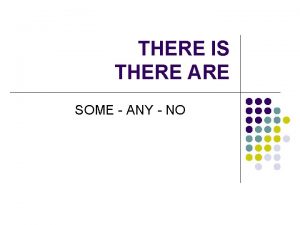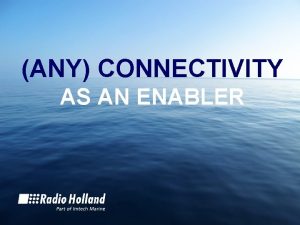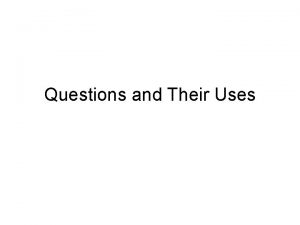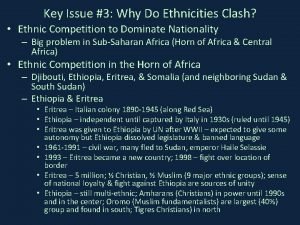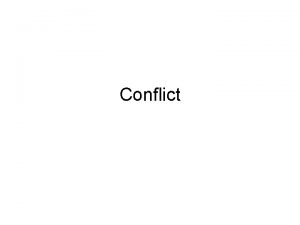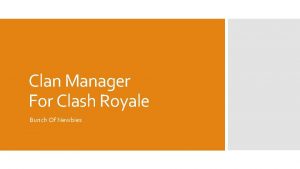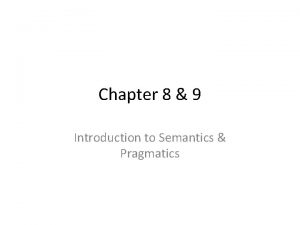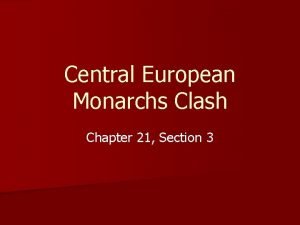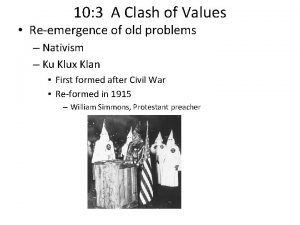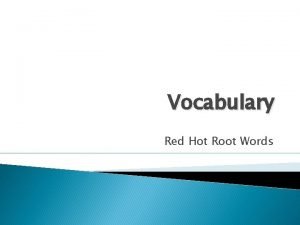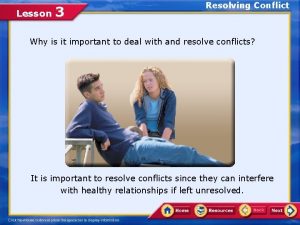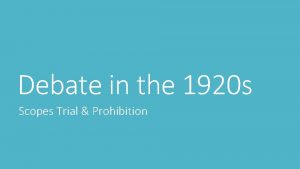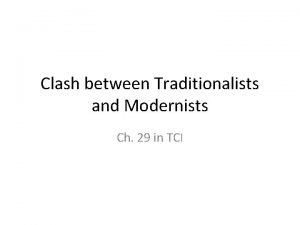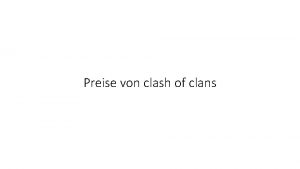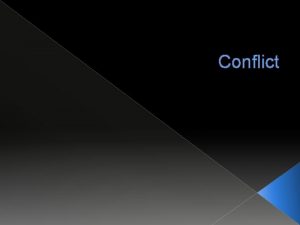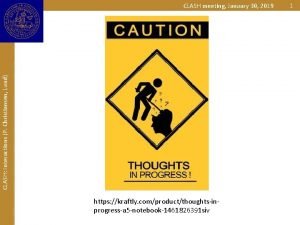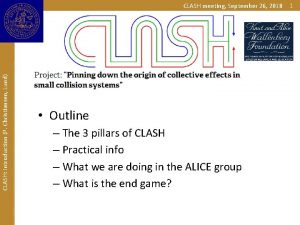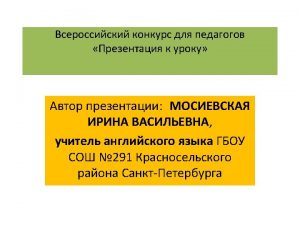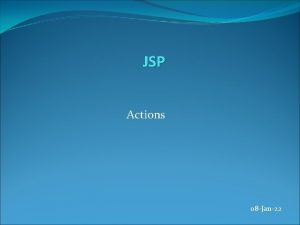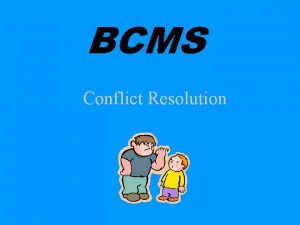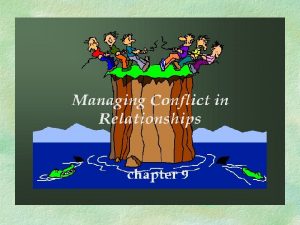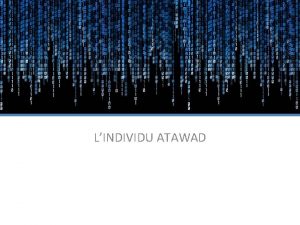Conflict CONFLICT Definition Conflict Any clash of actions














- Slides: 14

Conflict CONFLICT

Definition • Conflict: • Any clash of actions, ideas, desires, or wills. A conflict can be external or internal, or both. • A conflict may be physical, intellectual, psychological, emotional, or moral, or a combination of these.

• A conflict always involves a story’s protagonist (main character). • The protagonist does not need to be heroic while overcoming their conflict. We may even find some protagonists are not admirable or likeable at all; they are called antiheroes.

How does it relate to plot? • A story cannot exist without conflict. • Conflict adds excitement and suspense to a story. • The conflict usually becomes clear at the beginning of a story. As the plot unfolds, we start to wonder what will happen next and how the characters will handle the situation. • The climax of the story is when the main conflict of the story is resolved. • In short stories, there is usually one major conflict. In longer stories, there could be several conflicts.

Types of Conflict Person vs. Society Person vs. Environment External Person vs. Fate Person vs. Self Internal

Person vs. Person • The main character (protagonist) finds themselves in conflict with another character (antagonist). The character could be a human or an animal, but must be a live being. This does not have to be a physical struggle!

Person vs. Society • The protagonist is in a conflict against a society, or a group of people, a culture or system of set ideas. This could be the society they come from or a new/different one. Often times, the protagonist will disagree with the norms, or implied rules of that society/culture.

Person vs. Environment • The protagonist is in conflict with their environment. This could be nature (weather, geographic location), technology, etc.

Person vs. Fate • The protagonist is in a conflict against fate. This could include luck, God, spirits, or some other greater force outside of the protagonist’s control. Usually works unpredictably.

Person vs. himself/herself • This internal struggle is a conflict that exists inside the protagonist’s mind. It may involve making decisions , accepting their reality, or overcoming other personal issues; psychological issues.

• Watch “The Paperman” • What is the main conflict driving this story? • What kind of conflict is it? • What is the climax?

“Death by Scrabble” By Charlie Fish Read this short story. What is the main conflict? What other types of conflict exist in the story, what are they?

Study Guide Questions for “Death by Scrabble” 1. 2. 3. List five events (conflicts) that are part of the story’s “rising action”. What types of are conflicts are they? Explain the significance of the scrabble words the narrator’s wife plays. How do they relate to his thoughts and actions. Cite one specific example to support your answer. What is the climax of this story? Explain why.

Tying it all together How can an author’s conflict choices create a better story or make a bigger impact on the reader?
 No there aren't
No there aren't Any to any connectivity
Any to any connectivity Any question atau any questions
Any question atau any questions Why do ethnicities clash
Why do ethnicities clash A conflict is a struggle between
A conflict is a struggle between Clash royale clan manager
Clash royale clan manager Superordinate and hyponym
Superordinate and hyponym Hapsburg triumphs
Hapsburg triumphs Clash of lights 10
Clash of lights 10 Col to come together with great force to clash
Col to come together with great force to clash Lesson 3 a clash of values
Lesson 3 a clash of values What clash does the scopes trial represent?
What clash does the scopes trial represent? Chapter 29 the clash between traditionalism and modernism
Chapter 29 the clash between traditionalism and modernism Chapter 5 section 3 central european monarchs clash
Chapter 5 section 3 central european monarchs clash X bogen clash of clans
X bogen clash of clans
